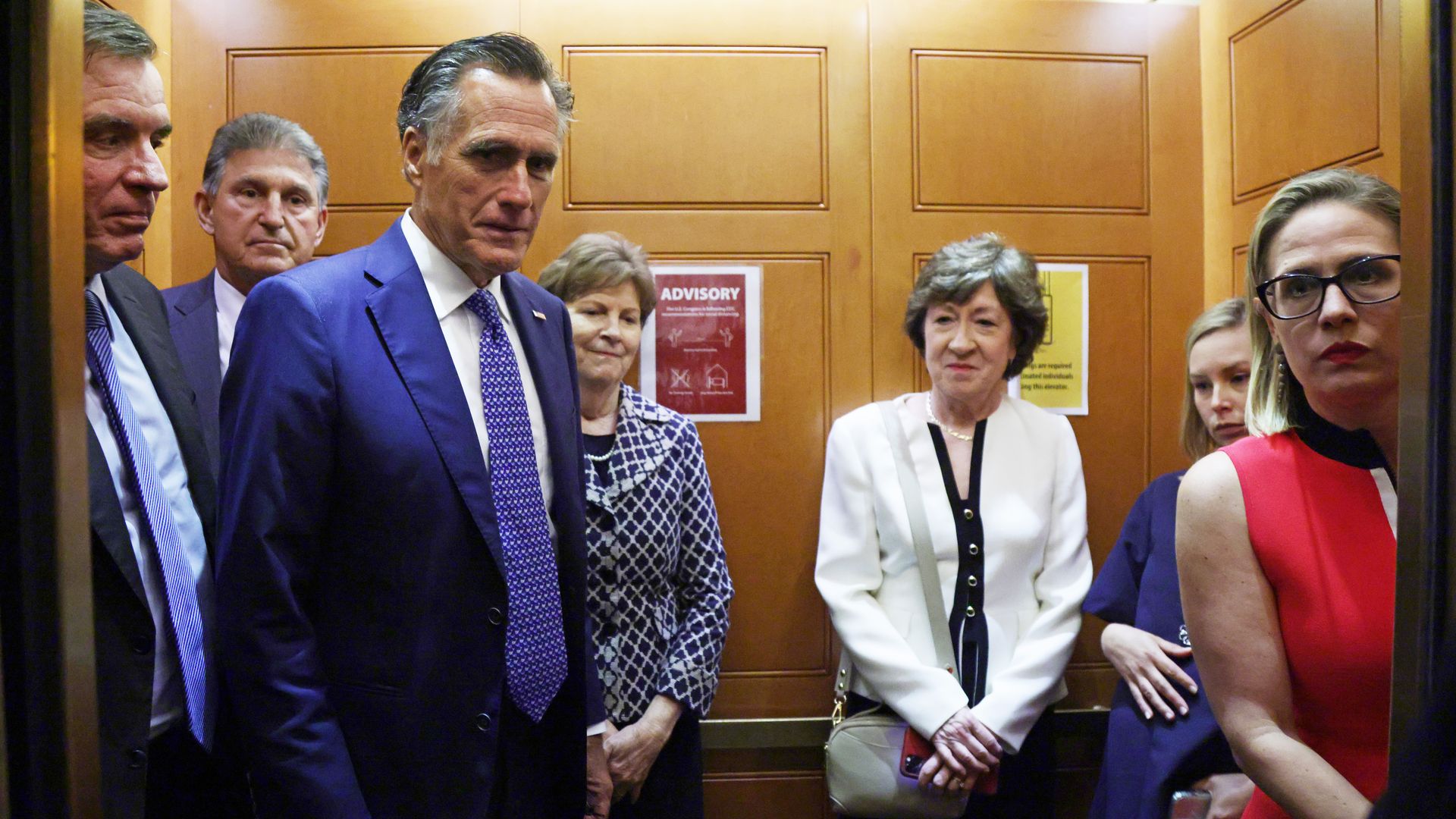Jun 10, 2021 - Politics & Policy
Bipartisan group reaches agreement on infrastructure proposal
Add Axios as your preferred source to
see more of our stories on Google.

Sens. Mark Warner, Joe Manchin, Mitt Romney, Jeanne Shaheen, Susan Collins and Kyrsten Sinema take a break from a meeting on infrastructure. Photo: Alex Wong/Getty Images
